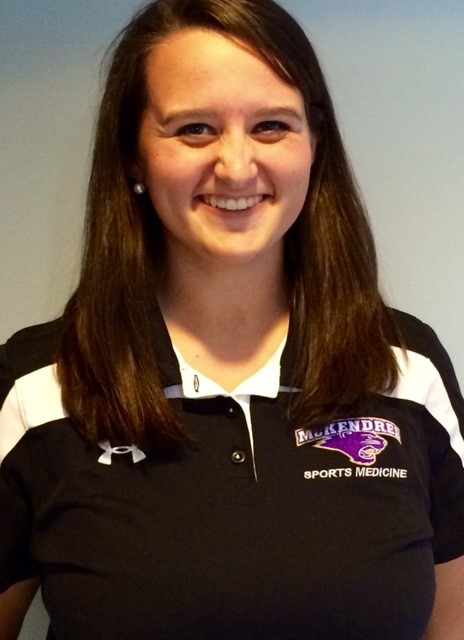BY BRITANI BEASLEY
Staff Writer
 Taylor Simmons, a junior at McKendree University, is an athletic training major with a minor in sport psychology. Simmons is also a student Ambassador and a Lyn Huxford Center for Community Service Scholar/ McCat Member.
Taylor Simmons, a junior at McKendree University, is an athletic training major with a minor in sport psychology. Simmons is also a student Ambassador and a Lyn Huxford Center for Community Service Scholar/ McCat Member.
When asked why she chose athletic training she said, “I chose athletic training because I have always wanted to pursue a medical degree and help others. When I was injured at a University of Illinois softball camp, I had to be seen by the attending athletic trainer. I asked about her job and what she was doing; I knew instantly that was what I wanted to be.”
I then asked what the toughest part of being an athletic trainer was, and she responded, “I think that the toughest part of being an athletic training student is time and stress management. We have rigorous material being thrown at us every week and we are expected to know it and put it into practice while a preceptor is looking over our shoulder. We are required to be at all practices and home events and by our senior year we travel with the football team, therefore you need to be able to get your homework done in a timely fashion so that you do not get behind.”
After hearing about the toughest part of being an athletic trainer, I was curious as to what the most rewarding part of being an AT might be. “The most rewarding part of being an athletic training student, in my opinion, is the relationships that we build. The athletic training education program at McKendree is essentially a big family. We are always there for each other in times of need and I know that the professors in the program will go to great lengths to help us out if we need them. We also build strong relationships with our athletes,” Simmons replied.
To conclude our interview, I asked if she had any advice for a student that is wishing to pursue athletic training. “The only advice I would give to a student wishing to pursue athletic training or first years in the program is make sure that it is something you love. It is such a high caliber curriculum that you will be pushed and if you don’t love it, you will want to change your major and by then you are already years into the program,” Simmons advised.
Simmons’s career goals are to get her masters in athletic training and work at the high school or collegiate level. She hopes to eventually open her own rehabilitation clinic.
For more information on McKendree University’s athletic training program,
please visit http://www.mckendree.edu/academics/info/nursing-health/health/athletic-training/index.php.